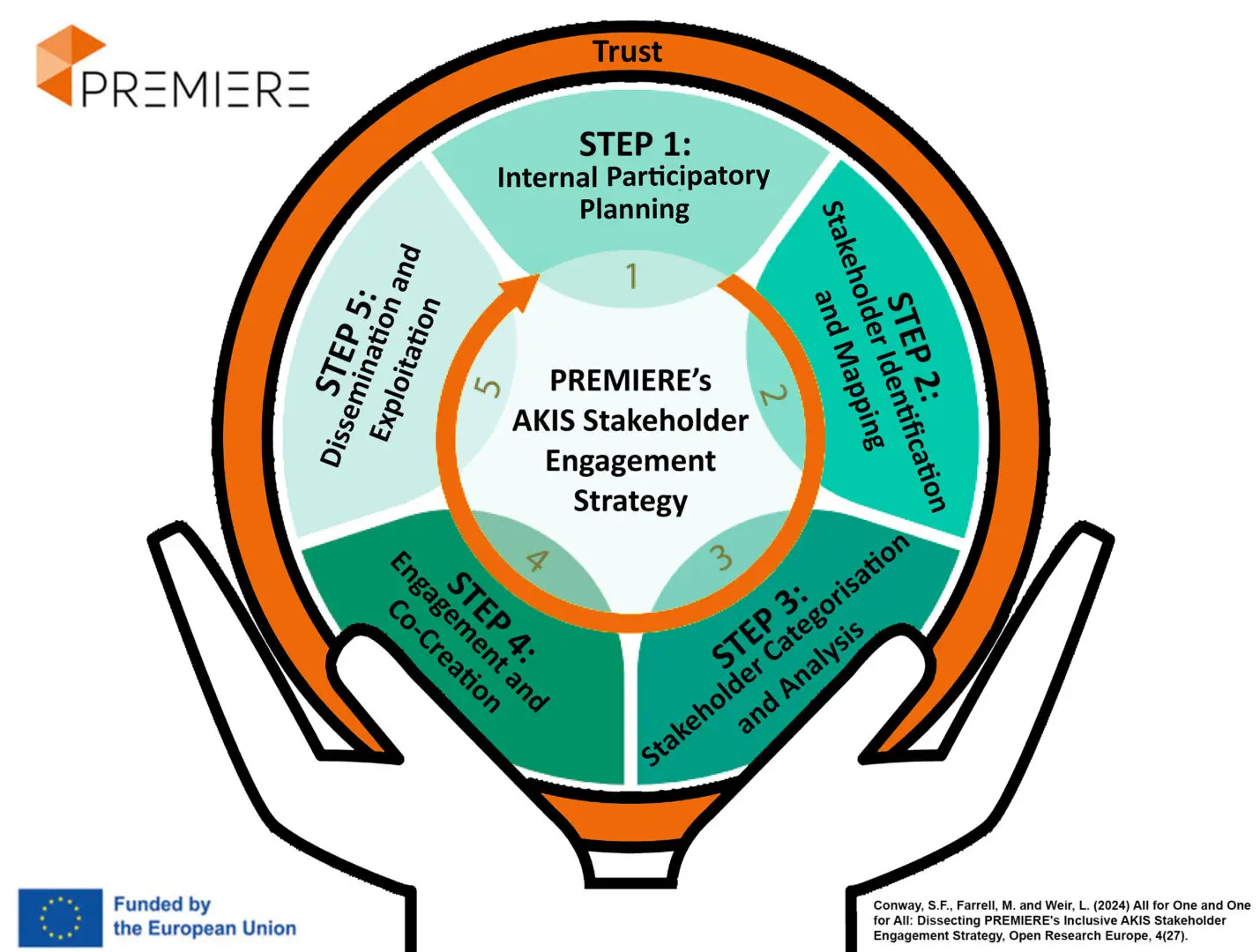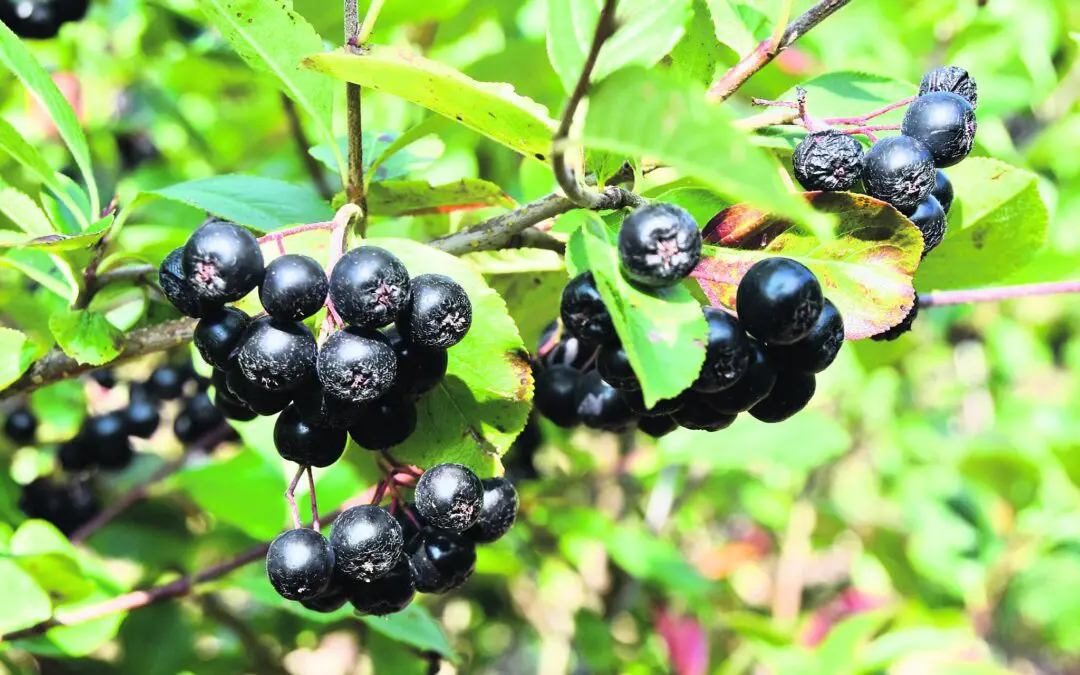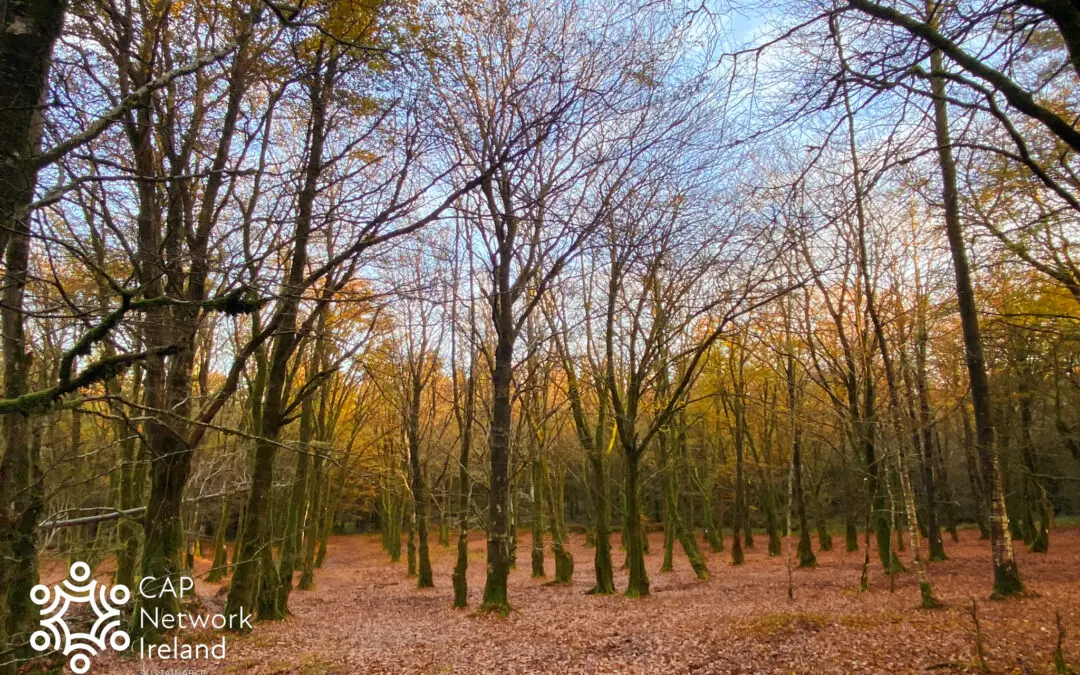Article provided by Dr Shane Conway, Dr Maura Farrell, Dr Frances Carter & Louise Weir from the Rural Studies Centre, University of Galway, Ireland.
Innovation is increasingly seen as a social process, more bottom-up and interactive, than top-down science to implementation. Projects being funded at an EU level by the European Commission funded under Cluster 6 of the Horizon Europe Work Programme (Food, Bioeconomy, Natural Resources, Agriculture and Environment related projects), and EIP-AGRI Operational Groups (OGs) projects at a national and regional level by Managing Authorities (DAFM in an Irish context) in each of the 27 EU Member States, are embracing this concept by now placing a greater emphasis on the value of the multi-actor approach (MAA). The MAA makes the best use of different types of knowledge and complimentary expertise (practical, scientific, technical, organisational, etc.) by bringing together key stakeholders across the entire Agricultural Knowledge and Innovation System (AKIS) (e.g. researchers, advisors, agri-businesses, farmers) in an interactive way to identify and implement innovative solutions in the agri-food sector and rural economy.
Closing the innovation gap between policy, research and practice by taking into account the social dimensions involved in farming, forestry and rural society through the MAA will enhance the adoption of multi-actor project results amongst (end-) users at local/regional/local level (e.g the farming community). Enabling farmers, for example, to be producers and not just simply recipients of agricultural innovations is an important shift in focus because a farm is not just a piece of land or a workplace, but rather represents the physical manifestation of generations of knowledge; knowledge developed and used over time by both the farmer and by those who have lived and worked there before. As such human capital is not easily transferable, communicated or learnable, future multi-actor EIP-AGRI projects, for example, will be unsuccessful if they do not learn from the farming community’s invaluable store of locally specific tacit and lay knowledge developed shaped and internalised by the daily and seasonal labour-intensive demands working the land.
PREMIERE is a Coordination and Support Action (CSA) Horizon Europe Project (2023-2027), tasked with strengthening the MAA by supporting the development of coherent and well-prepared multi-actor Horizon Europe project proposals, and related policy instruments such as EIP-AGRI OGs. The project’s Stakeholder Engagement Strategy, inspired by strategic management literature, has been developed by the project’s University of Galway team to help mobilise this process. This strategy ensures compliance with the MAA, through the development of 5-step engagement process (see figure 1) aimed at mapping, analysing, categorising and connecting with an extensive and diverse network of AKIS stakeholders in the agri-food sector and rural economy from across policy, research and practice groups at EU, National and regional level, to enhance the preparation of such multi-actor project proposals in an inclusive and co-creative way, as outlined by the European Commission’s Horizon Europe Work Programme 2023-2024.
Figure 1: 5-Step PREMIERE Stakeholder Engagement Strategy
Creating an ‘enabling environment’ to foster and ‘speed up’ innovation through genuine dialogue, holistic insights and feedback loops amongst relevant stakeholders, ranging from policy makers to harder to reach groups ‘on-the ground’ throughout this 5-step stakeholder engagement process, helps to build trusting, meaningful and lasting relationships of mutual respect, in place of mere, one-off consultations, subsequently strengthening knowledge transfer, exchange and sharing in agriculture, forestry and related sectors, for the betterment of the European Green Deal, the EU Climate Policy, the Common Agricultural Policy (CAP) and Farm to Fork Strategy objectives and targets. Such an inclusive approach towards boosting innovation in agriculture, forestry and rural areas, also changes the narrative from ‘designing for’ to ‘designing with’, resulting in a better understanding of relevant actor’s interests and priorities, subsequently leading to reduced conflict and better outcomes, for all involved.
PREMIERE’s particular focus on providing underrepresented and/or ‘harder to reach’ groups across Europe, which often tend to be disconnected from mainstream networks, with an opportunity to be involved in the project from the outset, is important, as it helps ensure that those actors whose stories are often marginalised by the larger assemblages, such as the farming community, are not only represented, but also provided with a ‘voice’, in order to achieve fair representation of all relevant groups, not just the easy to access groups. Such an approach will, in turn, enable PREMIERE project outputs to significantly contribute to CAP’s cross-cutting objective of modernising the sector by fostering and sharing knowledge, innovation and digitalisation in agriculture, forestry and rural areas, and encouraging their uptake amongst (end-) users.
More information on PREMIERE’s 5-Step Stakeholder Engagement Strategy can be found in a paper published on this strategy in Open Research Europe, a scholarly publishing platform available to Horizon 2020 and Horizon Europe beneficiaries. (Citation: Conway, S.F., Farrell, M. and Weir, L. (2024) All for One and One for All: Dissecting PREMIERE’s Inclusive AKIS Stakeholder Engagement Strategy, Open Research Europe, 4:27, see: https://doi.org/10.12688/openreseurope.16954.1).
Funding
PREMIERE is funded from the European Union’s Horizon Europe Programme.
————–
Text & Images source: Rural Studies Centre, University of Galway, Ireland.






